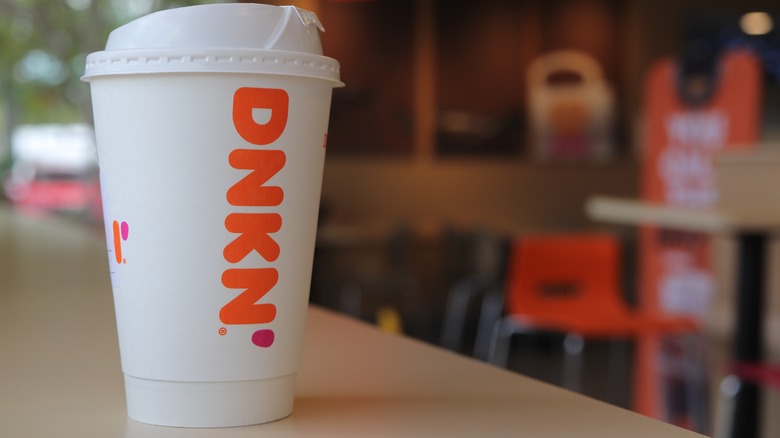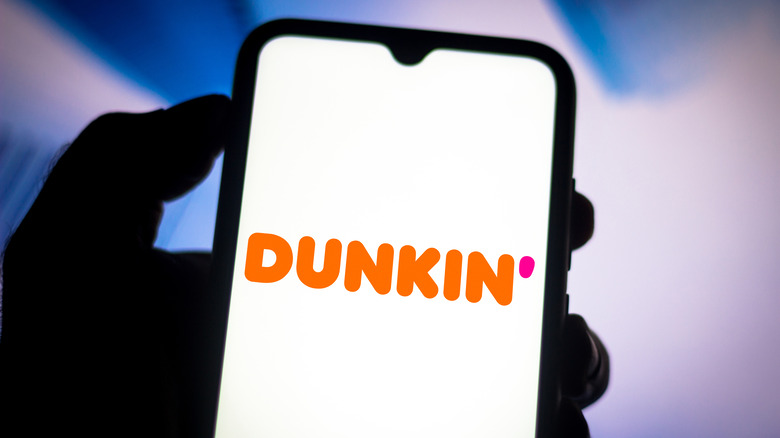Dunkin's President Defends Disaster Rewards Update On Fox News
Corporations aren't people, but those who run them are. And like most people, they tend to make mistakes. Unlike most people, however, their mistakes can have some pretty severe financial consequences. Dunkin' has found itself dealing with the fallout from such a mistake involving recent changes to the company's loyalty program.
For a bit of context, let's go back a couple of weeks. According to a press release on October 6, Dunkin' overhauled its DD Perks reward system and replaced it with the new Dunkin' Rewards which, on paper, would offer guests more reward choices, more options on how to spend and save points for said rewards, and even a new "Boosted Status" that would serve as an exclusive tier to frequent customers. While this probably sounded great in the company marketing room, it seems customers aren't exactly thrilled with most of the changes.
Reddit users note that certain perks like free birthday drinks were gone and that most of the better rewards were now locked behind a higher paywall. FORTUNE details how customers took to social media in a fury about what they saw as price-gouging and unnecessary changes, with some even calling for a boycott of Dunkin' until the rewards system is fixed.
Recently, Dunkin's operating president stepped up to offer an explanation and save face for the company. Was this all a big mistake or was it something out of the company's control?
The Dunkin' Rewards program was built on customer feedback
Scott Murphy, the operating president of Dunkin' Americas, recently appeared on FOX News during a discussion on inflation. As the topic turned to Dunkin's new rewards program, Murphy explained that it was built based on feedback from "loyal guests" who wanted more flexibility with their points and a wider selection of free foods and drinks to choose from. But if the program was built on customer feedback, why the negative response from customers?
Perhaps, as Murphy reasons, patrons dealing with high prices from inflation would be less eager to spend money on morning donuts and coffee, considering they're now watching every penny. Customers certainly wouldn't want to spend more money for more points just for free espressos when it would be cheaper to get a regular coffee, right?
However, the defense of Dunkin' Rewards being built around customer feedback seems to place the rewards system in a paradox: A program built on what customers want is somehow hated by customers, who demand the older system back. In a statement to AXIOS Boston, Scott Murphy seemed optimistic, stating that "Change is always going to be an adjustment," and adding that in the long run, customers will find themselves benefiting more from the Dunkin' Rewards program.
Whether or not Murphy's prediction will come true is yet to be seen.

